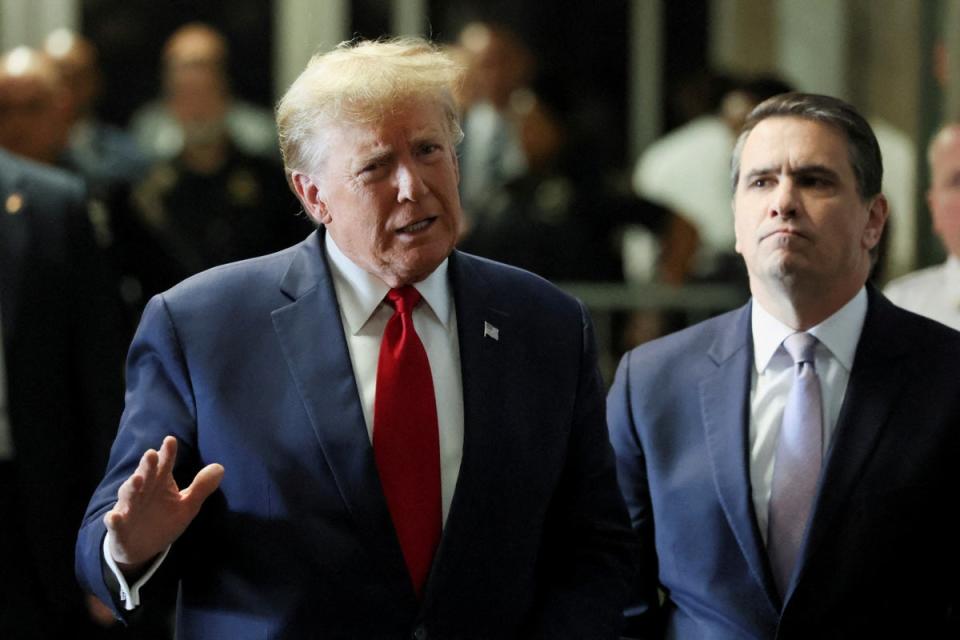Trump lawyers try to stop hush money trial until Supreme Court decides ‘immunity’ claim
Donald Trump’s attorneys want the judge overseeing his criminal case in New York to take the trial off the calendar until the US Supreme Court decides whether the former president can claim “immunity” from prosecution in a separate case.
Jury selection for a criminal trial on charges connected to hush money payments to an adult film star ahead of the 2016 presidential election is scheduled for 25 March. It is the first criminal proceeding against the former president – and the first ever against any former president – among the four criminal cases he faces in four jurisdictions.
The nation’s highest court will hear Mr Trump’s arguments on his “immunity” defence on 25 April, the final day for oral arguments in this year’s session, and one month after his trial in New York is scheduled to begin. A federal judge and appeals court have already shot down his attempts to evade criminal prosecution on charges connected to his attempts to overturn the 2020 presidential election.
A ruling from the Supreme Court is likely to follow several weeks later.
In a filing on Monday, Mr Trump’s attorneys argued that statements that Mr Trump made on Twitter and to news networks about his former attorney Michael Cohen in 2018 “implicate the concept of official acts for purposes of presidential immunity,” but the filing does not address the alleged repayment scheme that is central to the case – which took place months before Mr Trump entered the White House.
His Twitter account was “an official communications channel during his Presidency, to communicate with the public regarding matters of public concern,” according to Mr Trump’s attorneys Todd Blanche and Susan Nechles.
Attorneys asked New York Judge Juan Merchan to adjourn the trial pending the Supreme Court’s review of presidential immunity, and then schedule a hearing to remove evidence that would be considered “official acts” covered by that immunity.
They do not appear to argue that he is immune from the charges themselves.

Last year, in the first criminal indictment against him, a grand jury under Manhattan District Attorney Alvin Bragg charged the former president with 34 counts of falsifying business records in connection with repayments to Cohen, who arranged a hush money scheme to prevent the release of potentially damaging stories about Mr Trump and an affair with Stormy Daniels leading up to the 2016 election.
Mr Trump has pleaded not guilty to all charges.
Mr Trump, Cohen and David Pecker, the former owner of the National Enquirer, allegedly worked in concert to “identify, purchase, and bury negative information” about then-candidate Mr Trump to boost his electoral prospects,” according to prosecutors.
The case could rely on testimony from Cohen, who joined the Trump Organization in 2006, and who made the payment to Ms Daniels only days before the 2016 election, according to prosecutors. Following Mr Trump’s election victory, he reimbursed his then “fixer”, who is expected to say in the upcoming trial that Mr Trump authorised his business to falsely file the payment as legal expenses.


